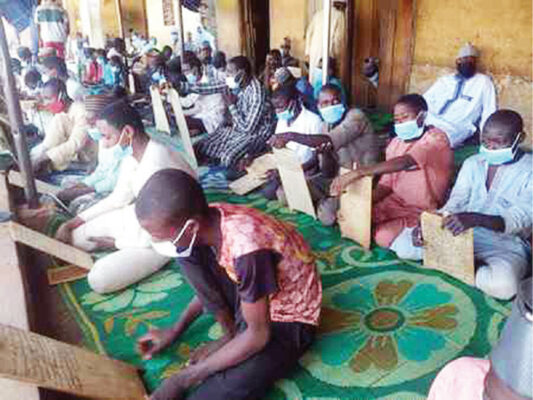Stakeholders call for reform of Tsangaya education system
Some civil society organisations (CSOs) have called for the reform, revival and integration of western education into the Tsangaya system to tackle the out-of-school children challenge in Nigeria. The organisations made the call at the unveiling of training manuals on Gender Responsive Education Sector Planning and Tsangaya Reformation in Abuja. The Country Director, Plan International, […]

dahiru bauchis tsangaya school in kaduna 533×400
Some civil society organisations (CSOs) have called for the reform, revival and integration of western education into the Tsangaya system to tackle the out-of-school children challenge in Nigeria.
The organisations made the call at the unveiling of training manuals on Gender Responsive Education Sector Planning and Tsangaya Reformation in Abuja.
The Country Director, Plan International, Charles Usie, said reforming Tsangaya was critical to the reduction of the number of out-of-school children in the country
Represented by Helen Idiong, the Director of Programme, Quality and Influencing, Plan International, Usie said there was a need to give Tsangaya students numeracy and literacy education to complement their quranic education.
- THE BEARING: What Will Happen As 1.5 Million Muslims Gather On Mount Arafat
- Borno’s boost for education turning tide against Boko Haram
He said: “The Tsangaya system has been in existence for years as we have children coming into a religious setting and they are given some form of skills in educational training. Over the years, the context has somehow changed. Children in this sector are usually in the streets as they don’t have the educational qualification required to help them in the current context we live in.”
“The idea is to see how the CSOs can relate with owners and implementers of this Tsangaya education system to see how to transform it without losing the religious value.”
Also, the national moderator, Civil Society Action Coalition on Education for All (CSACEFA), Mr Duke Ogbureke, called for adequate investment in Tsangaya education, saying that not training these children will have a multi-sectoral effect in the Nigerian polity.
According to him, the children must be trained in some level of education to understand the implications of having very many children they cannot cater for, leading to population growth.
